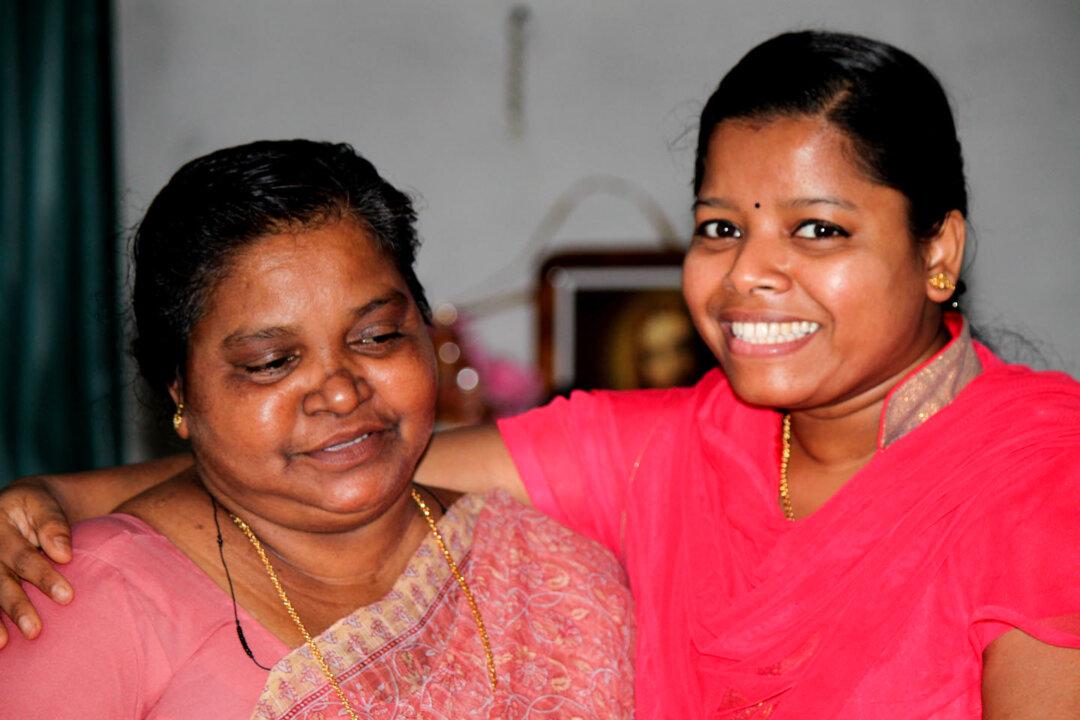KERALA, India—One week ago, Tincy Thomas was trapped in an Iraqi hospital with 45 other Indian nurses from Kerala.
“We were tense. We kept praying all the while. The militants were always concealed and heavily armed. We couldn’t even see their eyes because they wore sunglasses,” Thomas recounted, referring to the Islamic State in Iran and Syria (ISIS) militants. “But they were kind to us and provided us all we needed,” she added.
For 23 days, Thomas was caught in what some analysts are calling another Iraqi civil war between the Shiite-dominated government and ISIS, a Sunni rebel group. On June 11, ISIS militants took over the city of Tikrit in central Iraq where Thomas had been working at the Tikrit Teaching Hospital since February.
“The hospital had only 10-12 patients left and one Iraqi doctor. We kept hearing sounds of heavy shelling and bombing from outside. The whole building kept shaking. We couldn’t sleep for a month,” recalled Thomas, speaking with an Epoch Times reporter at her home in the town of Koratty, Kerala.
Thomas had been living with 15 other nurses on the ground floor of the hospital. Last Thursday, ISIS militants told them and the 31 other Indian nurses on the second floor to get ready to leave the hospital.
At that point Thomas called the Indian Embassy in Iraq, which advised the group of nurses not to go, saying if they left the hospital the embassy would have no way to trace them.
“We knew they [ISIS militants] would come tomorrow morning because they were very pushy. Next day they came at 11:30 a.m. and said, ‘We’ll give you only 10 minutes. Whatever you want to take, take. There’s a bus (outside). You should go.'”
Thomas, who had previously worked in the United Arab Emirates for three years, speaks both Arabic and English. She was the translator for the nurses and the ISIS rebels, an anonymous source for the media, and the contact for Indian officials during the situation.
She again called the Indian Embassy to tell them the ultimatum, and they told her, “‘Better you go—don’t provoke them because they may start shooting,’” she recalled. “So there was no hope. We thought we should go. If we don’t go, they will shoot us. If we go, we'll die with them—only like that we were thinking. At that time we were too afraid.”
Knowing that they had to be of one mind, the nurses came to a consensus that they would leave the hospital.
“Then they (ISIS militants) said, ‘Inside the hospital there’s a bomb. If you stay here, what’s your plan? You know what will happen!’”
As they left the hospital on Friday, glass on the third floor of the building shattered and injured some of the nurses. Thomas said she thinks it was gunfire, and estimates five or six nurses were harmed, none fatally.
“[At] that time we didn’t know where they are taking us. We didn’t know what they'll do to us and there was nobody to help,” said Thomas.
Despite the dire situation, she stresses that the militants were kind to them in the hospital, and even on the bus never even looked at them.
“They asked us to give up our mobile phones. But the bus driver even allowed us to make few calls,” she said.
As the nurses boarded the bus, the world media reported they were being abducted or kidnapped by ISIS militants. As it turns out, they were being taken out of the country.
The nurses were driven in a covered bus and escorted by motorcade from Tikrit to Mosul, about 140 miles north. From Mosul they drove them to the border of Mosul and a close-by city Erbil, which is still under the control of the Iraqi government.
At the border of Erbil, the nurses were handed off to an official from the Indian Embassy and a group of Iraqi officials. The next day, they were put on a chartered flight to India along with other Indians living in Iraq, and were flown to Kochi, Kerala.
At the airport, they were received by Indian government officials, and relieved, happy family members.
The nurses’ return was a success story for the Indian government, which has been dealing with a real hostage situation of 39 Indian workers in Mosul since last month. Now the government is focusing its attention on them and an unknown number of other Indian nationals trapped in Iraq.
Back home now, Thomas has started searching for jobs in safer countries.
While the situation in Iraq was stressful, Thomas says she feels a sense of confidence after having been through what she did.
“I got inspired that I can speak. I’m now ready to go abroad and work,” she said.
Thomas has been called in to interview for nursing jobs in the United Arab Emirates and Oman—the top two countries she would like to work in most.





